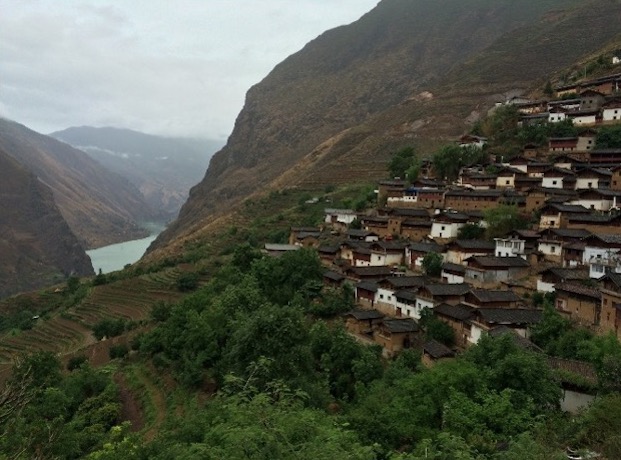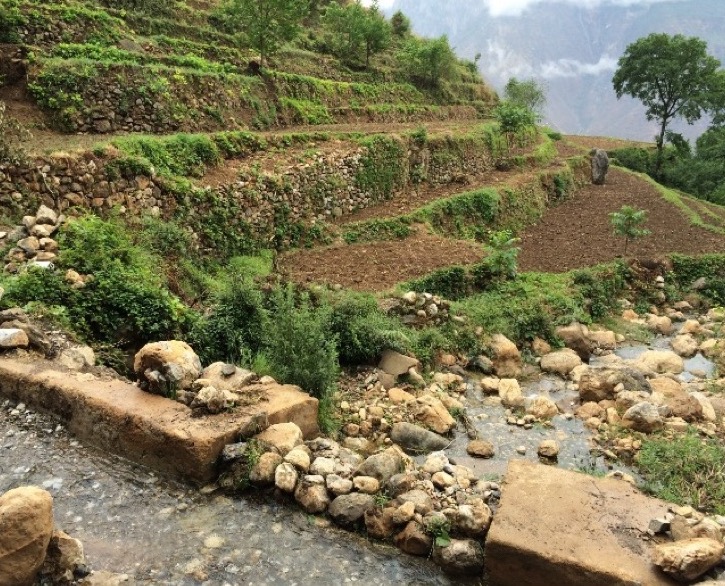Stone Village, China
Tucked into the mountains of Yunnan Province, Stone Village has been the capital of the Naxi people for 1,400 years. A Naxi core value is that human life and the environment would be in balance. And Naxi biocultural heritage reflects resilience and solidarity in Naxi communities. This heritage – Naxi views of the spiritual world, their culture, and their ritual traditions – are all embedded in their agricultural history. It remains essential to a sustainable future. Stone Village farmers manage and maintain a thousand-year-old system of irrigation channels that course through and under fields of grains and vegetables. The system is grounded in Naxi values which emphasize the wisdom of harmonious co-existence between people and nature.
Today a major component of Stone Village’s biocultural heritage is its community seed bank, which includes over 100 local landraces of rice, maize, sorghum, vegetables, and soybeans, and 25 other local plant species of significant cultural and economic value. Stone Village is one initiative among several in China to support farmers’ local seed systems and their basis in farmers’ traditional knowledge. It is part of an action research collaboration – the China Farmers Seed Network – to advance farmer-managed seed systems in seven communities, all located in zones designated as Nationally Important Agricultural Heritage Sites (NIAHS).
The NIAHS are mosaics of agricultural land use, landscapes, and livelihood activities that have emerged from indigenous and local farmers’ experiences and adaptation to unique natural environments. The action research is enabling local women and men farmers to identify key factors that characterize the ecological, socio-cultural and economic resilience of agricultural heritage systems, and apply these factors to their own community seed system. In this way, Stone Village farmers aim to strengthen their traditional ecological values, life principles
Return to the November 2017 Newsletter Index

